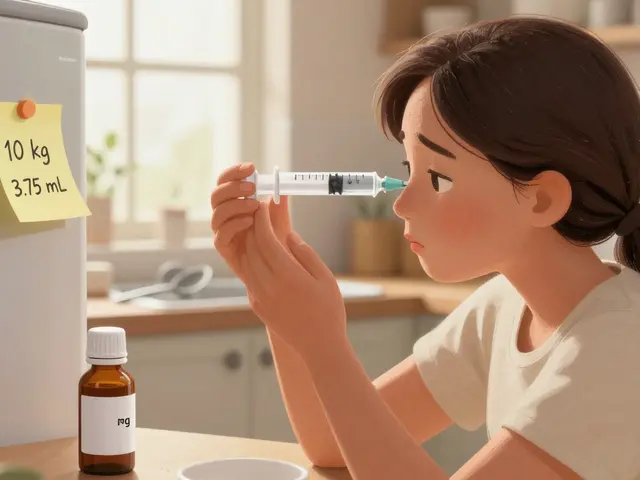In recent years, research has been exploring the connection between aspirin and osteoporosis, a condition that weakens bones, making them more susceptible to fractures. Studies have shown that regular aspirin use may have a positive impact on bone health by reducing inflammation and promoting bone formation. However, it's important to remember that these findings are not definitive and more research is needed to fully understand the relationship between aspirin and bone health. As a blogger passionate about health, I'm excited to see where this research leads and will continue to keep my readers updated on the latest developments. In the meantime, it's crucial to maintain a balanced diet, exercise regularly, and consult a healthcare professional for personalized advice on maintaining strong bones.
Bone Health: Practical Tips to Keep Your Bones Strong
Broken bones can change your life fast. But you don’t need extreme measures to protect yourself. With the right food, movement, and a few simple checks, you can keep bones denser and lower your fracture risk as you age.
Nutrition and Supplements
Calcium and vitamin D matter. Aim for about 1,000 mg of calcium daily if you’re an adult under 50; women over 50 and men over 70 should target 1,200 mg. Eat dairy, canned salmon, tofu made with calcium, and leafy greens. If you can’t get enough from food, a supplement helps — split doses (500 mg twice a day) absorb better than one big pill.
Vitamin D helps your body use calcium. Most adults do well with 600–800 IU daily; people over 70 often need 800–1,000 IU. If you have low vitamin D on a blood test, your doctor may prescribe a higher dose briefly. Don’t guess — too much vitamin D can cause problems.
Watch other meds and nutrients. Too much sodium and caffeine can increase calcium loss. Long-term steroids, some antiseizure drugs, and certain cancer treatments also weaken bones. Tell your doctor about any medicine that could affect bone health.
Exercise and Lifestyle
Move for your bones. Weight-bearing exercise — walking briskly, stair climbing, or light jogging — stimulates bone growth. Add strength training two times a week to build muscle and protect joints. Balance and flexibility work, like tai chi or simple standing-on-one-leg practice, cut your fall risk.
Quit smoking and limit alcohol. Smoking slows bone repair and lowers estrogen, which harms bone. Drinking more than two standard drinks a day raises fracture risk. Small changes here pay off in fewer breaks later.
Home safety is practical: secure rugs, add night lights, install grab bars where you need them, and wear shoes with good grip. Falls are the most common cause of serious fractures in older adults.
Get the right checks. A DEXA bone density test is the standard. Doctors commonly recommend it for women 65+ and men 70+, or earlier if you have risk factors like a fracture after age 50, long steroid use, or certain diseases. If your test shows low bone density, your clinician will discuss medicines that reduce fracture risk and how long to stay on them.
If you already have osteoporosis, medications can cut fracture risk by half or more depending on the drug. Treatment choice depends on your age, bone loss pattern, other health issues, and how long you need therapy. Ask about side effects and monitoring.
Small, steady changes beat dramatic short-term fixes. Improve one habit this week — add a calcium-rich snack, do a 20-minute walk, or remove a tripping hazard at home. Those choices add up and give you stronger bones for years to come.






